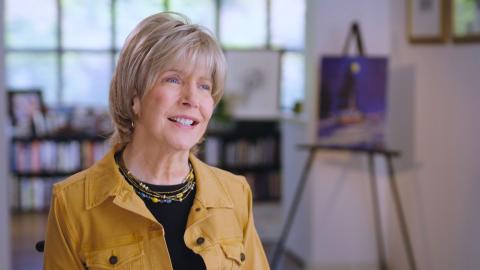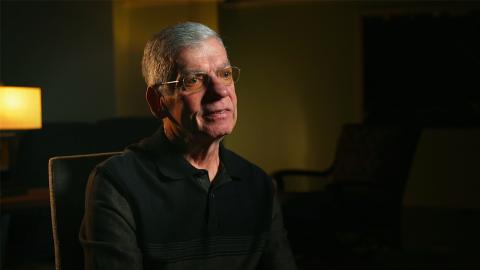42: Movie Review
Baseball icon Jackie Robinson’s story of breaking professional baseball’s color barrier in 1947 is not only an important moment in sports history but it also forged a critical bridge to easing the racial divide in America. Despite the extreme prejudice Robinson faced, his willingness to walk this very courageous path paved the way to racial integration in all sports.
42, the well-crafted biopic about Robinson, is an ambitious attempt to re-tell an iconic moment in the annals of baseball history. Starring newcomer Chadwick Boseman (Robinson) and Harrison Ford (Branch Rickey), 42 is the story of two men from very different worlds who were willing to face unabashed racism at every turn to make positive change.
THE MOVIE IN A MINUTE
Jackie Robinson is a promising young baseball player who starred at UCLA but finds himself relegated to playing in the Negro Baseball League, a fine collection of baseball talent but one that is relegated to having its teams play in virtual obscurity. Long bus rides, sub-par playing conditions and being prohibited from decent food & lodging establishments are the norm rather than the exception.
Legendary Brooklyn Dodgers General Manager Branch Rickey, who was never known for his social grace, decides that it is time to change the game of baseball. Just a year removed from the end of World War II, Rickey puts himself at the forefront of history when he signs Robinson to a Major League contract, a deal that breaks baseball’s infamous color barrier. In doing so, the duo faces a barrage of hateful prejudice from the public, the press, and a vast majority of the other players. Yet for all the racial injustice that ensues, during that first season Robinson ultimately wins over the fans and his teammates.
THE GOOD AND BAD IN 42
From a physical standpoint, Boseman closely resembles the legendary Dodgers star and does a commendable job embodying the spirit in which Robinson played the game. The only drawback is that viewers are continually reminded that Boseman is likely only scratching the surface in plumbing the depths of who Robinson really was.
This is never more evident than in several scenes throughout the movie when Robinson asks Rickey, “Why Me?” We never get a clear answer other than a powerful exchange between the pair when Robinson signs his contract. He asks the general manager, “You want a player that doesn’t have the guts to fight back?” Rickey’s response – “No I want a player who’s got the guts not to fight back.”
In playing Rickey, Ford makes a valiant effort to shed his other iconic film roles (ex. Indiana Jones) by dropping his voice an octave and altering his look a bit through the use of prosthetics. The end product is a gruff, enjoyable character, if not a bit of a caricature.
Visually, director Brian Helgeland (A Knight’s Tale) has done a tremendous job of making a movie that looks like the era it actually transpired in. Warm, faded color tones make 42 look like actual sports films from the late 1940s but with a much crisper clarity. The ballpark exterior of legendary Ebbets Field as well as the interiors of the several other stadiums featured is genuinely authentic in feel and scope.
As a baseball fan, it should also be noted that Helgeland gets the action on the field right. It is obvious he has gone to great lengths to cast actors who can actually play baseball. Boseman as well as Lucas Black (Seven Days in Utopia), who plays teammate Pee Wee Reese, appear completely at ease wearing Dodger blue.
42 is not for the faint of heart. Filled with several explicitly disturbing scenes of racial horror, you will definitely squirm in your seat as Robinson’s story unfolds. In a scene late in the movie, Philadelphia Phillies manager Ben Chapman (Alan Tudyk, I Robot) spews a tirade of hate-filled slurs every time Robinson steps to the plate. Moments like this one are highly offensive but make their point.
Christian viewers will be thrilled with several faith-laced monologues by Rickey. Most poignant is a scene where he has woken up Dodger manager, Leo Durocher (Christopher Meloni, Law & Order), with a late night phone call to tell him Robinson will be on the team. At the time, Durocher is in bed with a woman who is not his wife. Rickey quips, “Leo, it says eight times in the Bible that we are to love our neighbor as ourselves. How do you feel about that in relation to Jackie Robinson?” Durocher mumbles that as long as he can play baseball at a high level he doesn’t care what his ethnic background is. Rickey concludes the conversation by saying, “And Leo, the Bible has a lot to say about adultery, too.” Click.
A warning, there is mild profanity in 42 as well as players drinking beer.
IN THE END
While it seems 42 is just skimming the surface in its quest to hit various touch points in Robinson’s life, this is an important movie to see for anyone interested in learning more about an American hero’s incredible sacrifice for the good of baseball, and more importantly, paving the way for racial equality in all sports.




